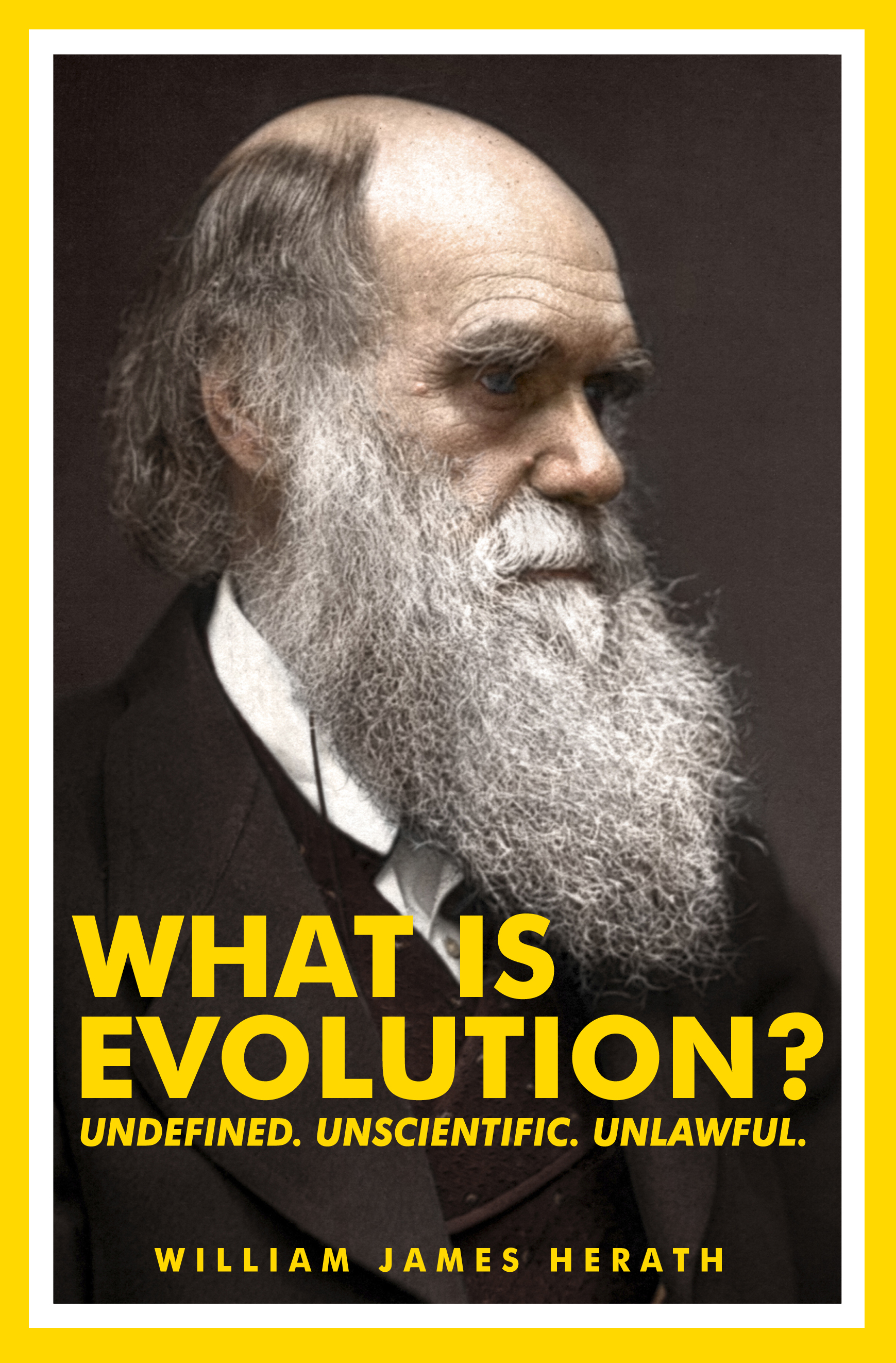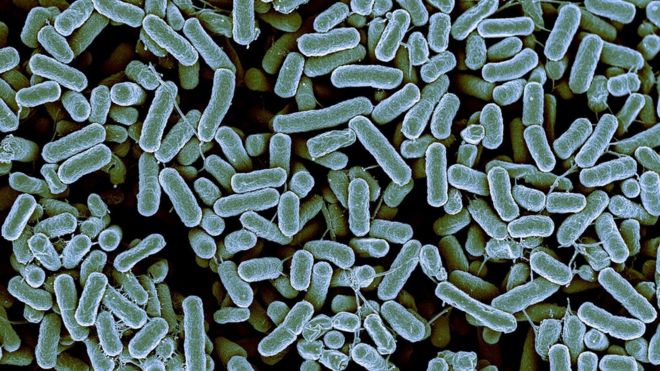
number 1
The first proof or evidence for evolution mentioned in Peacock’s article is “Universal Genetic Code.” Every organism alive today has DNA. We humans have it and so do unicellular organisms. Is this proof that all life evolved from a common ancestor? How many other scenarios could also use this same evidence? If “Universal Genetic Code” is strong evidence for evolution/common ancestry, what else should we see? As we move up the tree of life from unicellular organisms to humans, should we observe an increase in genetic complexity? Why would an ancient and “lower” organism like a bullfrog have a genome that is 200 times bigger than the genome of a human? Why do chickens have 32 chromosomes more than humans? Yes, all life does have a “Universal Genetic Code,” but why is there no consistent increase in genetic complexity as we move from lower to higher life forms? Is “Universal Genetic Code” good evidence for evolution? I dedicate a large section of my book to these types of questions and I invite you to join in the conversation.
number 2
The second proof or evidence for evolution previously mentioned in Five Proofs of Evolution is the fossil record and how, “it shows that the simplest fossils will be found in the oldest rocks, and it can also show a smooth and gradual transition from one form of life to another.” Of course we must acknowledge some assumptions, for in this quote there are two things that need to be addressed… the age of rocks and the idea there is a smooth transition from species to species represented in the fossil record. Is the age of a rock able to be determined with certainty? In a previous post entitled, How is the age of a rock layer determined? I asked many questions about determining the age of rock layers and how many circular patterns of reasoning are used. With that said, if we were able to determine an accurate age of a rock layer, are simple organisms the only thing to be found in the oldest rocks? What about new rocks, why are the same simple organisms found in new rock layers? Why are the same simple organisms still alive today? Are some life forms immune to evolutionary change? I posted on this topic already, and I titled it What About Fossils? Feel free to read it, because I go into great detail in regard to the fossil record and the conundrum of how some organisms defy evolution for eons.
Does the fossil record show a smooth transition from species to species? Can this idea be used as a “Proof” of evolution? Today, biologists struggle with the same issue of transitional fossils of which Darwin himself struggled. In the Origin of Species, Darwin wrote:
“Why does not every collection of fossil remains afford plain evidence of the gradation and mutation of the forms of life? We meet with no such evidence, and this is the most obvious and forcible of the many objections which may be urged against my theory. Why, again, do whole groups of allied species appear, though certainly they often falsely appear, to have come in suddenly on the several geological stages?“
An explanation has been created for this problem and it is called punctuated equilibrium. Stephen Jay Gould was an American paleontologist that put much time and energy into the American Museum of Natural History in New York, he was a Harvard professor, and the co-creator of a theory called punctuated equilibrium. Gould and his co-creator wrote that the “history of evolution is not one of stately unfolding, but a story of homeostatic equilibria, disturbed only ‘rarely’ (i.e., rather often in the fullness of time) by rapid and episodic events of speciation.“
This theory was created to explain the abrupt appearance of fully formed species in the fossil record. Punctuated equilibrium predicts evolutionary events to have taken place far too quickly to have been documented in the fossil record, thus explaining the sudden appearance of new and fully formed fossilized species. In layman’s terms, punctuated equilibrium explains that we do not see new species gradually appearing in the fossil record because species emerge faster than the amount of time needed for fossilization to take place.
Is it logical to claim that speciation happens faster than fossilization, yet also claim the emergence of species takes place over millions of years? Is true science being represented when evolutionary biologists, not only promote the idea of punctuated equilibrium, but also state that evolution unfolds over eons? When speaking of evolution, biologists claim that speciation could have taken millions of years or it could have happened so quickly that the fossil record was not able to document the change. Does this type of rationale confirm that empirical data and logic are paramount to evolutionary thought? Or does this type of rationale confirm that hopeful inference is paramount to evolutionary thought?
number 3
The third proof or evidence for evolution covered in the previously mentioned article has to do with “Genetic Commonalities.” Of which sounds very similar to the claim that “Universal Genetic Code” is a proof of evolution. Although basing a proof once again on genetics seems repetitive, let’s assume it is not and search for variation. A gene is a gene. If it is used to code functional proteins for hair, teeth, fingernails, or red blood cells in our bodies; other organisms also possessing hair, teeth, fingernails/claws/horns, and red blood cells have the same protein coding genetic sequences. Perhaps this is the reason proof number three is thought of as unique. If there is a “Universal Genetic Code” for red blood cells and in that code we find “Genetic Commonalities,” does it not feel like we are repeating ourselves. Obviously, feel free to scroll up and re-read my response to proof number one… it is very relevant to this third proof as well. There is a claim, however, that chimpanzees share 96% of their genes with humans. Is this true? Does this prove evolution? I have posted about this idea already in Genetics/DNA – part three.
number 4
The Fourth proof or evidence for evolution is “Common Traits in Embryos.” Again, this proof seems to be going back to genes and DNA. Common Traits, Genetic Commonalities, and Universal Genetic Code sound like the same thing just stated differently… three different times. Well, not shocking, I have already covered the idea of embryo commonalities being proof for evolution in the same article Genetics/DNA – part three. But here is a quote from that article, if you do not feel like going back again to re-read it.
“In short, embryonic homology promptly discounts any possible attempt of supporting evolution via genetic homology. Sir Gavin de Beer said it best when saying, ‘It is now clear that the pride with which it was assumed that the inheritance of homologous structures from a common ancestor explained homology was misplaced; for such inheritance cannot be ascribed to identity of genes.’ If the work of De Beer revealed that homologous structures among differing species do not develop from the same embryonic location, then no genetic relationships can be drawn between two species with homologous sequences because their development is not controlled by their homologous DNA. Due to this fact, what significance is there in finding similar genetic sequences in the genome of varying species?“
number 5
The fifth proof or evidence for evolution is “Bacterial Resistance to Antibiotics.”
The article states that, “bacteria colonies can only build up a resistance to antibiotics through evolution.” Of course, I need to stop and ask a question. If bacteria builds antibiotic resistance through evolution, than what is evolution? A lack of evolutionary definition is not unique to this article, it is a major issue in our educational system, judicial system, and scientific community. Why is there no scientifically agreed upon definition? I go into great detail in regard to this question in my book What Is Evolution?, I invite you to join me.
So, if bacteria evolves resistance, does that me all resistances in biology are from evolution? If bacteria and other unicellular organisms can evolve resistance so quickly, then why have they remained the same species for “billions of years?” Is speciation, the emergence of diverse life forms, part of evolution or not? Darwin wrote a book called the Origin of Species, would he have changed the title of his book if he knew about bacteria’s ability to evolve resistance, but not evolve into new species for eons? We must ask ourselves, when bacteria adapt to a new environment that includes antibiotics, is this evolution? If so, what about situations when organisms are exposed to natural pressures that do not require a new resistance for survival, if there is an evolutionary change are we talking about the same type of evolution?
Evolutionary biology is like a merry-go-round of terminology. When folks use the word evolution and fail to give a concise and scientifically agreed upon definition, clouds of confusion envelop the conversation. What Is Evolution? is a book that was written to start a conversation that is clear.
Join me in this clarity with a free sample of my first three chapters. CLICK HERE





